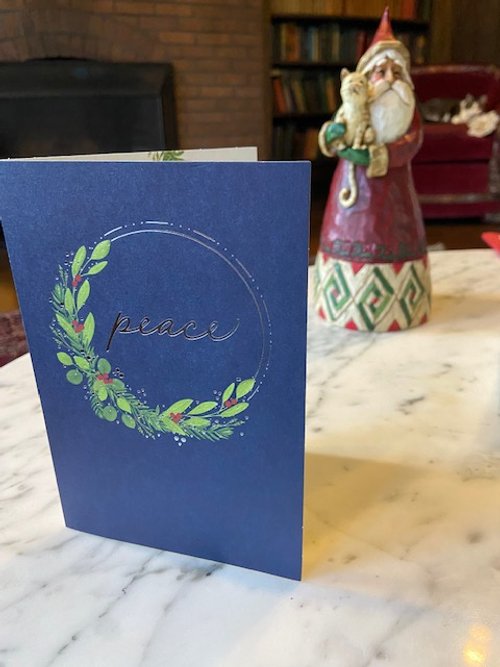Day 167: Are Christmas Cards Good for Your Mental Health?
I’ve never been one of those people who sends Christmas cards. Like, I really can’t remember if I’ve ever bought and addressed a box of cards, much less had the whole family (me and Artie?) dress up in our winter finest and go to a photographer.
Until this year, that is. While my effort is small (mostly a few family and friends who I’ve been meaning to reach out to soon anyway), it feels auspicious. Like I’ve cleared some kind of mental hurdle.
This got me wondering: Is sending Christmas cards good for your mental health?
Christmas Cards and Mental Health
Maybe so, it turns out. Last year, a team of researchers in the UK evaluated the relationship between Christmas card-sending and depressive mood (or lack thereof).
While their findings did not attempt to attribute caustion, the researchers did find a significant correlation between not sending Christmas cards and feeling depressed, at least among Christian respondents.
According to the study, “Christians with depression (20%) were more likely to ‘Never’ send Christmas cards, while those not depressed were 53% more likely to ‘Always’ send them, p < .01.”
Underappreciating Appreciation
While it may sound logical not to send out cards when you’re not feeling the Christmas cheer, other research suggests that writing out those yuletide messages may be exactly what we need if we’re feeling blue at Christmas.
The research around gratitude shows that expressing our appreciation for someone else predictably raises our mood. So why don’t people do it more often?
To explore this question, a team of researchers in 2018 had volunteers send expressions of gratitude to someone, and then asked them to predict how surprised, happy, or awkward the recipient would feel.
Their results showed that the sender often underestimated the recipient’s surprise and happiness at receiving the message, and overestimated the recipient’s feelings of awkwardness.
two types of prosocial behavior
Reading about this research made me reflect on my historical failure in the season’s greetings department. I actually think my practice (or lack thereof) is related to depression, though not directly.
So many people seem to get down at the holidays. Sometimes circumstances trigger that, like remembering a departed loved one or feeling lonely in a crowd.
But I often see people feeling negative around the holidays because “there’s so much to do.” My mother always pushed back on this: Christmas is for joy, so if something doesn’t feel joyful, kick it! Even as a child, this struck me as a very smart way to simply opt out of the anxiety and pressure so many people seemed to feel around Christmas. Although my mother (and, later, I) often struggled with depression, it wasn’t because of Christmas. Christmas made it better.
While this may have been a prosocial attitude (love those around you, be grateful for your savior, and don’t sweat the rest), it also may have led me to jettison some rituals that I could easily have adopted - rituals that would have benefited both me and the recipient. Like sending Christmas cards.
Reading the studies made me realize something else: I probably do underestimate how much people will enjoy receiving the cards. I know I love the ones we get — the beautiful artwork, the inspiring messages, the reminder that someone cares.
So, Merry Christmas!
This year, I already had some Christmas cards and stamps — bought belatedly in the bargain bin during a New Year’s shopping trip. I had put them in the cabinet with the Christmas decorations, and when I got out the Advent wreath and Nativity scene, there they were.
I’ve already sent a few. We haven’t collected a lot of addresses, and Gary has a big family, so this will likely be a work in progress for a few years. And I still believe in my mother’s mantra: If Christmas traditions start to feel like work, skip ‘em! Never forget the reason for the season.
But I’ve found it’s really no problem at all to write a quick note to a friend or two after finishing dinner. And expressing gratitude for even a handful of people is better than not expressing it at all.
So if you receive a card from us — or even if you don,’t this year — Merry Christmas and Happy New Year!
With gratitude,
Alison, Gary & Artie
